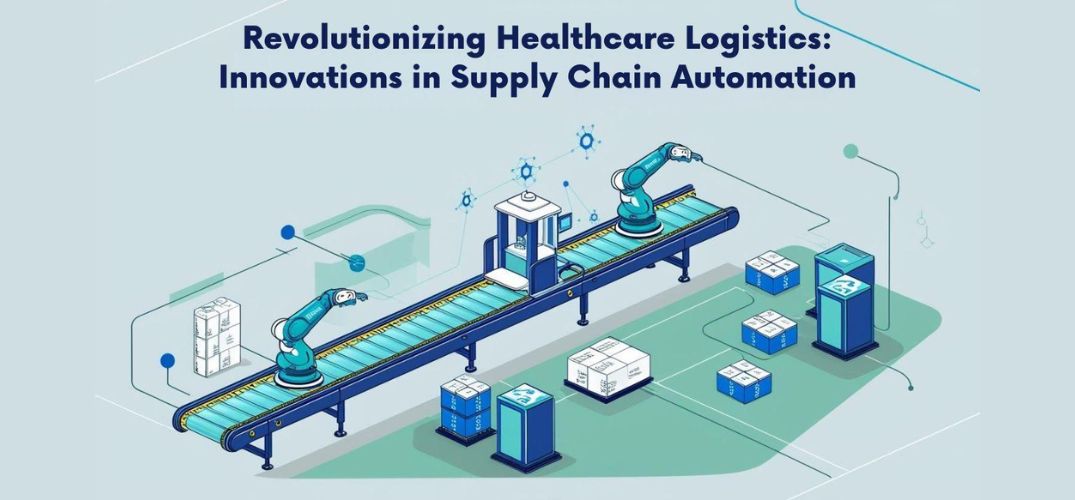In healthcare, where time is critical, efficient supply chains are essential for optimal patient care. Tushar Dasgupta’s recent work sheds light on the transformative role of automation technologies in enhancing healthcare supply chains. With growing demands for better patient outcomes and reduced operational costs, automation has become pivotal in streamlining logistics and ensuring timely access to vital medical supplies.
Advancements in Healthcare Supply Chain Automation
Advancements in healthcare supply chain automation, including RFID, IoT sensors, and blockchain, are improving inventory accuracy, traceability, and operational efficiency. RFID, in particular, has revolutionized inventory management, boosting accuracy from 65-85% in manual counting to 95-99%. This technology helps track high-value items, reducing shrinkage, labor costs, and enhancing the overall quality of patient care.
Real-Time Monitoring and Predictive Analytics
IoT sensors, built on RFID technology, have revolutionized healthcare logistics by enabling real-time monitoring, particularly for temperature-sensitive medical products. These IoT-enabled systems have reduced cold chain failures by up to 80%, ensuring medications are stored and transported under optimal conditions, preventing costly waste and enhancing product safety. Additionally, predictive analytics has transformed demand forecasting in healthcare. By analyzing historical data, it accurately predicts inventory needs, reducing stockouts and ensuring critical supplies are always available. This technology has led to a 70% reduction in emergency orders, lowering procurement costs and avoiding expensive expedited shipping, ultimately improving efficiency and cost-effectiveness in healthcare operations.
Robotics and Automation in Order Fulfillment
Robotic technologies are transforming order fulfillment in healthcare facilities. Automated Guided Vehicles (AGVs) have become essential in hospital supply chains, reducing labor costs by 20-30% and improving delivery reliability by 40%. Robotic medication picking systems have decreased errors by 58-67%, enhancing medication safety. Autonomous delivery robots have improved on-time deliveries to 98%, reduced staff interruptions, and increased staff satisfaction. Hospitals using these robots save up to $300,000 annually per robot, contributing to both efficiency and cost savings.
Blockchain and Data Integrity
Blockchain technology has made its way into healthcare supply chains, offering a solution to combat counterfeit drugs and improve product traceability. By enabling transparent, end-to-end visibility, blockchain enhances the security and authenticity of medical products, ensuring that medications are both genuine and properly tracked throughout the supply chain. Some systems have shown a 96% improvement in pharmaceutical verification time, a crucial factor in emergency care situations that require rapid product authentication.
Overcoming Implementation Challenges
Healthcare facilities face challenges in adopting automation technologies, such as high initial costs, workforce adaptation, and system integration issues. Phased implementation strategies focusing on high-value areas like inventory management are effective. While upfront costs are significant, many facilities see a return on investment within 18-36 months. Robust workforce training and change management are key to successful adoption and satisfaction.
The Road Ahead: A Smarter, More Sustainable Future
The future of healthcare supply chains is poised for further innovation. Emerging technologies like AI-driven robotics, digital twins, and 3D printing are set to revolutionize supply chain logistics. Digital twins, for example, are creating virtual replicas of physical supply chains, allowing for better scenario planning and reducing the impact of disruptions. Moreover, sustainability considerations are becoming increasingly important. Automation technologies are reducing the carbon footprint of healthcare supply chains by optimizing transportation and minimizing waste, contributing to both environmental and operational benefits.
The integration of these technologies has the potential to not only improve efficiency but also advance patient care. Blockchain, for instance, is evolving beyond simple product verification to include complex multi-party coordination, improving communication and coordination across healthcare systems. These innovations are expected to significantly reduce operational disruptions and improve the resilience of healthcare supply chains in the face of global challenges.
In conclusion, as highlighted by Tushar Dasgupta, automation in healthcare supply chains is not just a trend but a fundamental shift towards more efficient, cost-effective, and patient-focused logistics. With RFID, IoT, blockchain, and predictive analytics paving the way for smarter supply chains, healthcare facilities are better equipped than ever to meet the growing demands of modern healthcare. The future of healthcare logistics will rely heavily on these advanced technologies to optimize operations and, most importantly, improve patient outcomes.





























